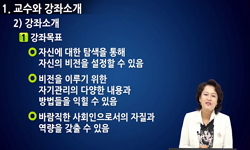이 연구는 아스퍼거 증후군 학생에게 자기관리를 훈련시켜서 통합학급의 점심시간에 보이는 부적절한 식사 행동과 편식 행동을 중재하였다. 실험설계 방법은 ABAB 반전설계이며 중재 종료 2...
http://chineseinput.net/에서 pinyin(병음)방식으로 중국어를 변환할 수 있습니다.
변환된 중국어를 복사하여 사용하시면 됩니다.
- 中文 을 입력하시려면 zhongwen을 입력하시고 space를누르시면됩니다.
- 北京 을 입력하시려면 beijing을 입력하시고 space를 누르시면 됩니다.

자기관리 훈련이 아스퍼거 증후군 학생의 식사 행동에 미치는 영향 = The Effects of Self-Management Training on Eating Behavior of a Student with Asperger Syndrome
한글로보기https://www.riss.kr/link?id=A60280009
- 저자
- 발행기관
- 학술지명
- 권호사항
-
발행연도
2012
-
작성언어
Korean
- 주제어
-
KDC
338.3
-
등재정보
KCI등재
-
자료형태
학술저널
-
수록면
59-81(23쪽)
-
KCI 피인용횟수
5
- 제공처
-
0
상세조회 -
0
다운로드
부가정보
국문 초록 (Abstract)
이 연구는 아스퍼거 증후군 학생에게 자기관리를 훈련시켜서 통합학급의 점심시간에 보이는 부적절한 식사 행동과 편식 행동을 중재하였다. 실험설계 방법은 ABAB 반전설계이며 중재 종료 2주 후에 유지 자료를 수집하였다. 자기관리 수행 방법은 우선 자기점검표를 만들고, 목표행동과 기록 방법 인식 훈련을 하고 이후 통합학급의 점심시간에 목표 행동을 실습하고 특수학급에 와서 식사 중 행동을 기록·평가하고 강화를 받는 것으로 이루어진다. 연구 결과, 아스퍼거 증후군 학생의 부적절한 식사 행동이 감소하였고 세 가지 반찬의 섭취 비율의 차이가 줄어서 편식 행동이 개선되었다. 중재 효과는 2주 후에도 유지되었으며 학부모와 통합학급 교사로부터 사회적 타당성이 높은 중재임을 확인할 수 있었다. 이러한 연구 결과를 토대로 통합교육 환경에서 아스퍼거 증후군 학생의 식사 행동을 중재하는 것과 관련한 시사점을 논의하였다.
다국어 초록 (Multilingual Abstract)
This study investigated effects of self-management training on eating problem behavior and food selectivity of student with Asperger syndrome. Reversal design was applied and maintenance data were collected. The subject was one elementary student with...
This study investigated effects of self-management training on eating problem behavior and food selectivity of student with Asperger syndrome. Reversal design was applied and maintenance data were collected. The subject was one elementary student with Asperger syndrome who exhibited mealtime problems in inclusive class. Before self-management training, the self-recording sheets were made and recording methods were taught to the subject with Asperger syndrome. Self-management training was consisted of focusing behavior practice in inclusive class and self-recording and reinforcing in resource room. The results of this study showed that the self-management training was effective to decrease the eating problem behaviors and to improve various food consumption behaviors. The intervention effects were maintained and a high degree of social validity showed in posttreatment satisfaction questionnaires. Implications of eating behavior treatment for student with Asperger syndrome in inclusive class were discussed and the future study issues were recommended.
참고문헌 (Reference)
1 Zirpoli, T. J., "통합교육을 위한 행동관리의 실제" 시그마프레스 2008
2 Heflin, L. J., "자폐 범주성 장애 아동 교육의 실제" 시그마프레스 2008
3 김하종, "국내 유아특수교육 분야의 실험 사례연구 분석" 한국언어치료학회 14 (14): 67-87, 2005
4 Sira, B. K., "Using peer modeling and differential reinforcement in the treatment of food selectivity" 35 (35): 91-100, 2012
5 Kahng, S. W., "Use of a multicomponent treatment for food refusal" 34 (34): 93-96, 2001
6 Adelinis, J. D., "Treatment of multiply controlled destructive behavior with food reinforcement" 34 (34): 97-100, 2001
7 Werle, M. A., "Treating chronic food refusal in young children : Home based parent training" 26 (26): 421-433, 1993
8 Mueller, M. M., "Training parents to implement paediatric feeding protocols" 36 (36): 545-562, 2003
9 Piazza, C. C., "The effects of magnitude and quality of reinforcement on choice responding during play activities" 35 (35): 259-270, 2002
10 Gutentag, S., "Shaping oral feeding in a gastronomy tube-dependent child in natural settings" 24 (24): 395-410, 2000
1 Zirpoli, T. J., "통합교육을 위한 행동관리의 실제" 시그마프레스 2008
2 Heflin, L. J., "자폐 범주성 장애 아동 교육의 실제" 시그마프레스 2008
3 김하종, "국내 유아특수교육 분야의 실험 사례연구 분석" 한국언어치료학회 14 (14): 67-87, 2005
4 Sira, B. K., "Using peer modeling and differential reinforcement in the treatment of food selectivity" 35 (35): 91-100, 2012
5 Kahng, S. W., "Use of a multicomponent treatment for food refusal" 34 (34): 93-96, 2001
6 Adelinis, J. D., "Treatment of multiply controlled destructive behavior with food reinforcement" 34 (34): 97-100, 2001
7 Werle, M. A., "Treating chronic food refusal in young children : Home based parent training" 26 (26): 421-433, 1993
8 Mueller, M. M., "Training parents to implement paediatric feeding protocols" 36 (36): 545-562, 2003
9 Piazza, C. C., "The effects of magnitude and quality of reinforcement on choice responding during play activities" 35 (35): 259-270, 2002
10 Gutentag, S., "Shaping oral feeding in a gastronomy tube-dependent child in natural settings" 24 (24): 395-410, 2000
11 Harper, C. B., "Recess is time-in : using peers to improve social skills of children with autism" 38 (38): 815-826, 2008
12 Koegel, R. L., "Pivotal response treatments for autism: communication, social, and academic development" Paul H. Brookes 2006
13 Dewrang, P., "Parental retrospective assessment of development and behavior in Asperger syndrome during the first 2 years of life" 4 (4): 461-473, 2010
14 Vollmer, T. R., "Noncontingent escape as treatment for self-injurious behavior maintained by negative reinforcement" 28 (28): 15-26, 1995
15 Nadon, G., "Mealtime problems in children with autism spectrum disorder and their typically developing siblings : A comparison study" 15 (15): 98-113, 2011
16 Provost B., "Mealtime behaviors of preschool children : Comparison of children with autism spectrum disorder and children with typical development" 30 (30): 220-233, 2010
17 Cornish, E., "Gluten and casein free diets in autism : A study of the effects on food choice and nutrition" 15 (15): 261-269, 2002
18 Ledford, J. R., "Feeding problems in children with autism spectrum disorders : A review" 21 (21): 153-166, 2006
19 Piazza, C. C., "Feeding disorders and behavior: What have we learned?" 14 (14): 174-181, 2008
20 Fisher, W. W., "Enhancing the effects of extinction on attention-maintained behavior through noncontingent delivery of attention or stimuli identified via a competing stimulus assessment" 37 (37): 171-184, 2004
21 Whiteley, P., "Developmental behavioral and somatic factors in pervasive developmental disorders : Preliminary analysis. Child : Care" 30 (30): 5-11, 2004
22 Lalli, J. S., "Competition between positive and negative reinforcement in the treatment of escape behavior" 32 (32): 285-296, 1999
23 Burklow, K. A., "Classifying complex pediatric feeding disorders" 27 (27): 143-147, 1998
24 DeLeon, I. G., "Choices between positive and negative reinforcement during treatment for escape-maintained behavior" 34 (34): 521-525, 2001
25 Terpstra, J., "Can I play? Classroom-based interventions for teaching play skills to children with autism" 17 (17): 119-126, 2002
26 Williams, G., "Autism and associated medical and familial factors : A case control study" 15 (15): 335-349, 2003
27 Kodak, T., "Assessment and behavioral treatment of feeding and sleeping disorders in children with autism spectrum disorders" 17 (17): 887-905, 2008
28 Bowers, L., "An Audit of referrals of children with autistic spectrum disorder to the dietic service" 15 (15): 141-144, 2002
29 Brown, J. F., "A parent-training programme for chronic food refusal : A case study" 30 (30): 118-121, 2002
30 Cornish, E., "A balanced approach towards healthy eating in autism" 11 (11): 501-509, 1998
동일학술지(권/호) 다른 논문
-
- 한국정서·행동장애아교육학회(구 한국정서학습장애아교육학회)
- 홍영근 ( Young Keun Hong )
- 2012
- KCI등재
-
- 한국정서·행동장애아교육학회(구 한국정서학습장애아교육학회)
- 김현영 ( Hyun Young Kim )
- 2012
- KCI등재
-
북아트를 활용한 기본교육과정 국어과 지도가 장애학생들의 국어과에 대한 태도에 미치는 효과
- 한국정서·행동장애아교육학회(구 한국정서학습장애아교육학회)
- 김경신 ( Kyung Shin Kim )
- 2012
- KCI등재
-
정서,행동장애 위험 학생을 위한 학교기반 멘토링 프로그램에 관한 문헌 연구
- 한국정서·행동장애아교육학회(구 한국정서학습장애아교육학회)
- 박지연 ( Ji Yeon Park )
- 2012
- KCI등재
분석정보
인용정보 인용지수 설명보기
학술지 이력
| 연월일 | 이력구분 | 이력상세 | 등재구분 |
|---|---|---|---|
| 2026 | 평가예정 | 재인증평가 신청대상 (재인증) | |
| 2020-01-01 | 평가 | 등재학술지 유지 (재인증) |  |
| 2018-03-22 | 학회명변경 | 영문명 : Korean Society For The Emotional & Behavioral Disorders -> The Korean Society of Emotional and Behavioral Disorders |  |
| 2018-01-02 | 학회명변경 | 한글명 : 한국정서·행동장애아교육학회 -> 한국정서행동장애학회 |  |
| 2017-01-01 | 평가 | 등재학술지 유지 (계속평가) |  |
| 2013-01-01 | 평가 | 등재학술지 유지 (등재유지) |  |
| 2010-01-01 | 평가 | 등재학술지 유지 (등재유지) |  |
| 2008-01-01 | 평가 | 등재학술지 유지 (등재유지) |  |
| 2006-01-01 | 평가 | 등재학술지 유지 (등재유지) |  |
| 2003-01-01 | 평가 | 등재학술지 선정 (등재후보2차) |  |
| 2002-01-01 | 평가 | 등재후보 1차 PASS (등재후보1차) |  |
| 2000-07-01 | 평가 | 등재후보학술지 선정 (신규평가) |  |
학술지 인용정보
| 기준연도 | WOS-KCI 통합IF(2년) | KCIF(2년) | KCIF(3년) |
|---|---|---|---|
| 2016 | 1.44 | 1.44 | 1.41 |
| KCIF(4년) | KCIF(5년) | 중심성지수(3년) | 즉시성지수 |
| 1.44 | 1.42 | 1.763 | 0.22 |




 KISS
KISS






